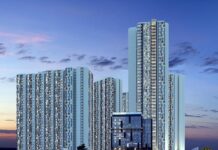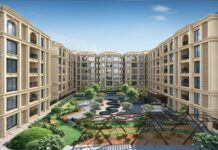August 24, 2015
What does “Going green” mean & how can it help common man to save money: It means you focus on buying the right appliances that relate to energy, water and waste. They save you these resources while saving money. They offer you water security and energy security, not always financial savings since the cost of water is next to nothing. A simple change in the taps at your house to efficient faucets with rating of under 6 liters per minute [against the conventional 12 liters] and a few such other water fixtures can save you as much as 100,000 liters a year to a family of four!
Take an Inverter-based AC that uses 0.3 units of power to every hour, or about 2 units to a night of use in summer. The conventional AC will use thrice as much, or 6 units for 8-hours use. If the unit rate of power is Rs 10, in a month alone you have saved 120 units, or about Rs 1200 or about Rs 14400 in the very first year. The inverter AC of course costs about Rs 30,000 more. But in less than 2-2.5 years you have ‘recovered’ the additional capital cost, and for the rest of the life of the AC, you save money by the month, by the year. Same applies for pumps at home. And to induction stoves, and refrigerators. If you built a house with proper thermal insulation, your cost of cooling the building will be less. This specially works for offices where the cost of ACs account for 65-67 per cent of the energy bill. If you have a glass wall on the west face or the south face in latitudes of 12 deg north to 15 deg N [Kanyakumari to say Nagpur] your ACs work overtime and add to your power bill hugely. Passive and low energy architecture therefore play a vital role. If it’s latitudes of above 20 deg North, the solar axis beats the north and east walls more.
Buying a green property- How much money can be saved: A Platinum certified energy-efficient green building can save you about 50 per cent on energy bills and about 50 per cent in the demand for fresh water, which means again less energy bills since your use of pumps for borewells or transporting water from distant places is cut sharply. Typically a green residential building can save you upto Rs 30,000 a year at the very minimum for a 2 bhk home with a family of four. There are homes in Gurgaon which pay up to a staggering Rs 35,000 a month as energy bills, with 2/3rds of that going for the central ACs!! Imagine the saving in such high end homes too.
Some tips on easy ways to go green : A simple calculus you could bear in mind as ‘tips’ to go green are : Look at energy, water, waste. Consider under each category what you can do to reduce consumption without compromise of comfort and convenience. Work on each. Do the math on the energy units consumed, for example, by a 10-year-old pump at home. If you bought a new one in exchange for the old, you will find the additional cost you incur will be ‘recovered’ by you in less than 2 to 4 years simply because of the energy efficiency that the new pump offers. Same goes for any number of other appliances you use in homes, factories, offices, hospitals and hotels. You could be working anywhere. Check the google, There are any number of sites that offer you such ‘tips’. All you need is your own willingness and conviction.
How much money we can save every month by going green : Well there are two kinds of savings. In money terms, it can be anywhere from 1,000 to 5,000 depending on what you have as appliances at home. If it is an office space of, say, 10,000 sft, and if your current cost of energy and water is about Rs 20 per sft, this can drop dramatically by about 4-5 per sft. There are large organisations which pay energy bills of Rs 60 lacs a month!! Some simple ‘green’ installation can bring this down by Rs 20 lac every month. The other kind of ‘saving’ is about enhancing water security. For example, if the demand for fresh water is reduced by say 50 per cent, it means your dependence on borewells [that are threatening to dry up across every city and town] and municipal supply [which are nearly non-existent in our big cities] is reduced sharply. That means you get your water needs met without the threat of scarcity.

















